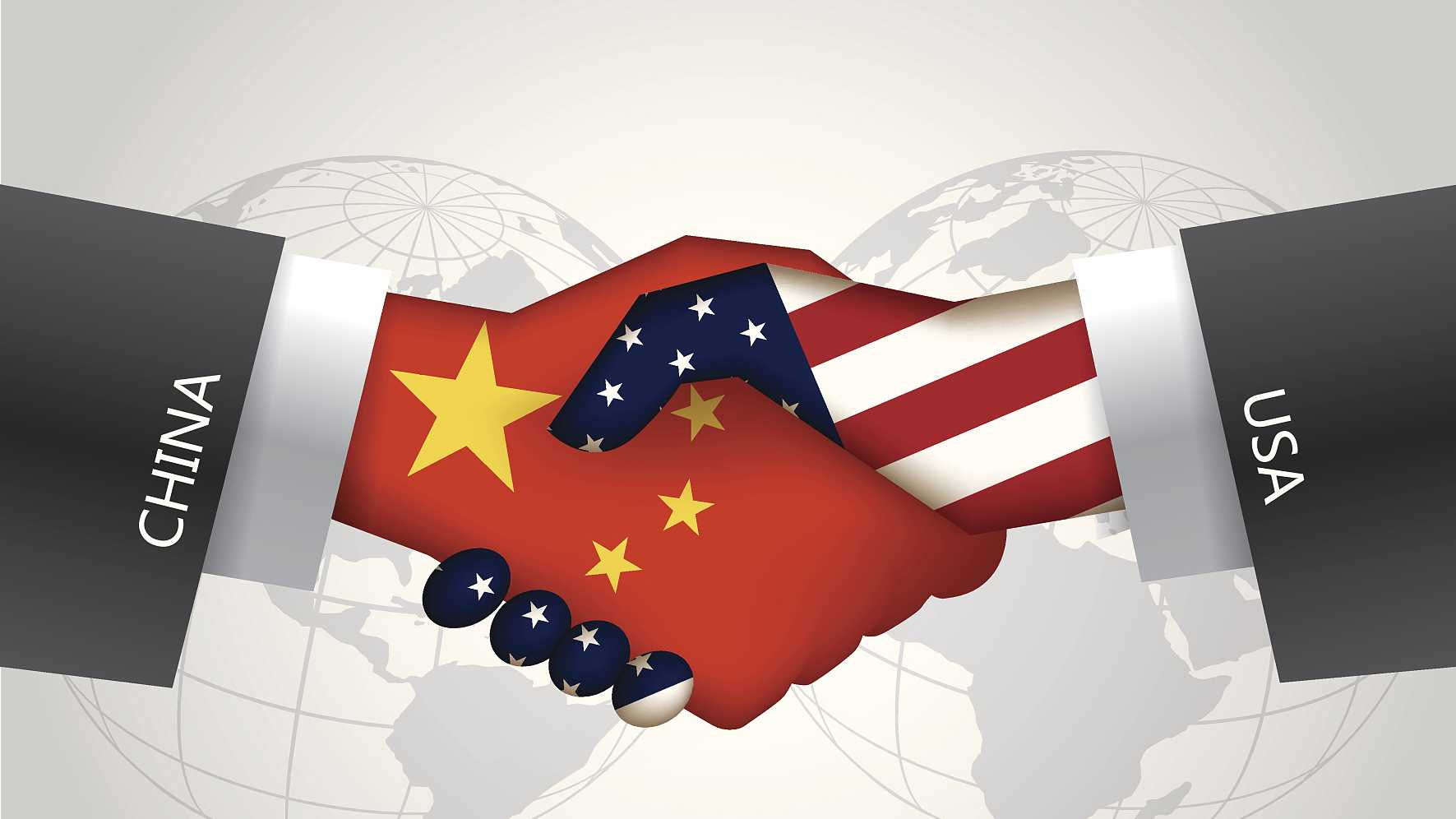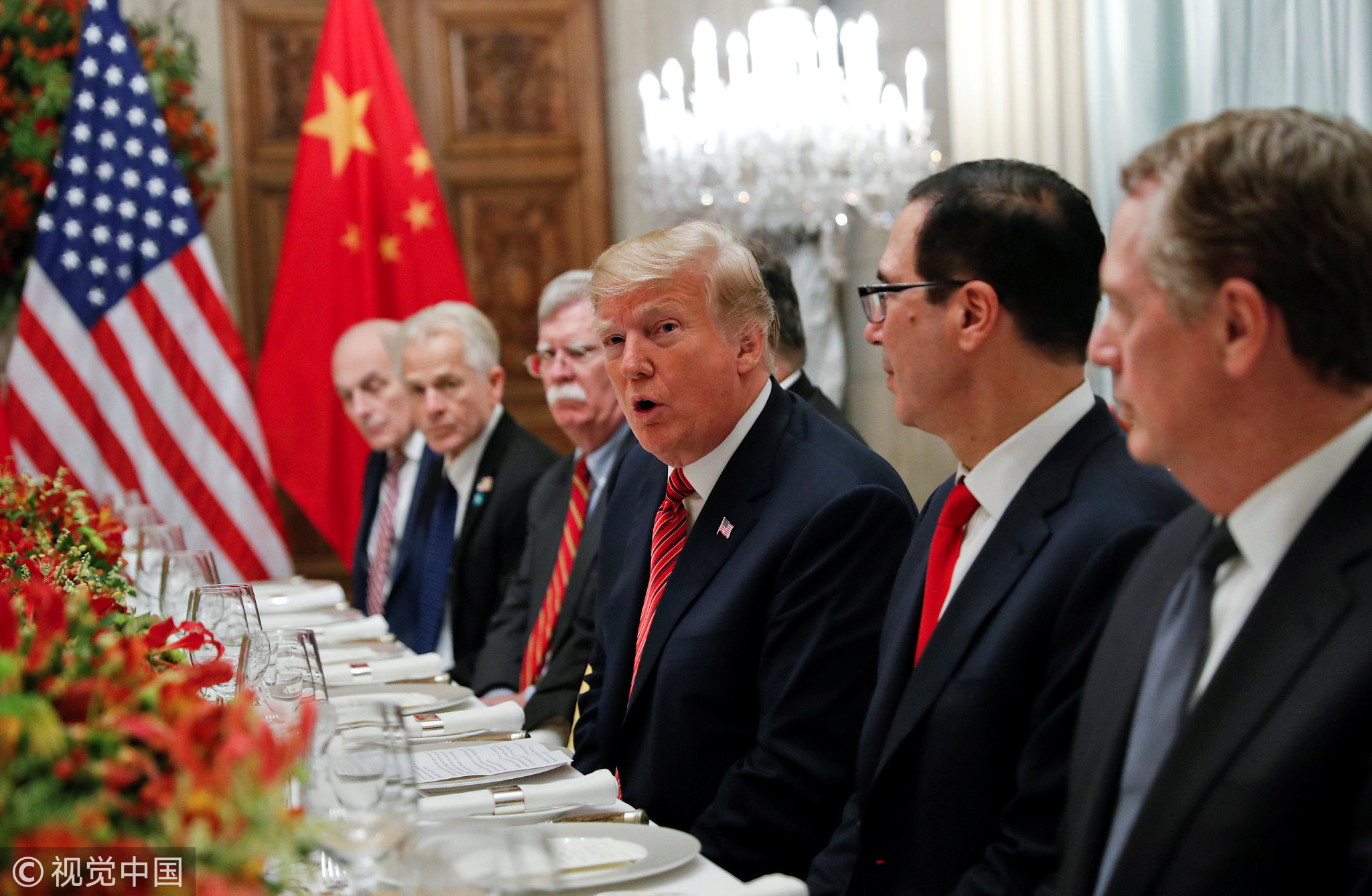
Opinions
15:05, 30-Dec-2018
Opinion: Xi-Trump phone call a good start for 2019 Sino-U.S. ties
Updated
14:08, 02-Jan-2019

Editor's Note: This article is an edited translation of a commentary first published in Chinese on thepaper.cn on December 30.
Chinese President Xi Jinping and his U.S. counterpart Donald Trump held a phone conversation on December 29. Since November 1, the heads of state have had two phone talks and one face-to-face conversation which was held on the sidelines of the G20 meeting in Argentina.
Such frequent negotiations suggest that China and the U.S. are working towards ending the ongoing trade frictions. In the just-concluded phone conversation, Xi and Trump resonated with each other, sending positive signals of Sino-U.S. relations.
Trump highlighted the importance of the Sino-U.S. relationship and his personal friendship with President Xi, saying that he values the great ties with Xi. Trump also said he further appreciated the efforts that the teams from both countries have devoted in implementing the important consensus reached between him and Xi during their meeting in Argentina, according to Xinhua report.
Xi, for his part, said both he and Trump hope to push for stable progress of the Sino-U.S. relations, adding that the bilateral ties are now in a vital stage.
Both countries have since been actively working to implement such consensus, the President said, expressing hopes that both teams can meet each other halfway and reach an agreement beneficial to both countries and the world as early as possible.

U.S. President Donald Trump and his team attend a working dinner with Chinese President Xi Jinping after the G20 leaders' summit in Buenos Aires, Argentina, December 1, 2018. /VCG Photo
U.S. President Donald Trump and his team attend a working dinner with Chinese President Xi Jinping after the G20 leaders' summit in Buenos Aires, Argentina, December 1, 2018. /VCG Photo
The phone conversation suggests that the two heads of state have the joint will to implement the consensus reached in Argentina and push for a deal satisfactory to both sides.
The Sino-U.S. trade disputes have been simmering for over nine months since March. It's also worth noting that next year marks the 40th anniversary of the establishment of Sino-U.S. diplomatic ties. In this context, the Xi-Trump phone conservation has set a positive tone for future Sino-U.S. relations.
Both China and the U.S. want to reach a deal. Beijing has reiterated its attitude to the trade war: On the premise of respecting China's national dignity and core interests, China has no intention to get involved in the trade battle, but in the meantime, will take retaliatory measures if the U.S. insists on the provocative trade acts.
The United States is in a much more sophisticated situation. The trade deficit, geopolitical rivalry and wealth gap are the major factors that caused Trump to unilaterally launch the trade war. If no significant breakthrough can be reached in the short term, profit-oriented American politicians are unlikely to withstand the battle.

Traders work on the floor of the New York Stock Exchange, December 7, 2018. /VCG Photo
Traders work on the floor of the New York Stock Exchange, December 7, 2018. /VCG Photo
Moreover, contractionary monetary policy makes new economic growth points unlikely at the current stage. The U.S. stock market has been perplexed by fluctuations recently and Trump has railed against the U.S. Federal Reserve from time to time. In short, America's political and economic performances suggest that the country cannot stand the pressure of a trade clash.
Given the above, Americans have the strong will to clinch a deal with China. But it's interesting that while the easing trade tensions is a result of mutual compromise, Americans would for sure hype it as a triumph over China.
Beijing remains cool-headed and focuses on its own affairs. The phone call, made at the invitation of Trump, is a good start for 2019 Sino-U.S. ties. But China should still take into account the China-U.S. economic gaps and Trump's capriciousness, and stay on high vigilance of any potential provocations from the U.S. side.
Honestly speaking, China itself is facing a number of domestic economic conundrums, all of which are major challenges for China in the country's attempt to end the trade war.
(If you want to contribute and have specific expertise, please contact us at opinions@cgtn.com)

SITEMAP
Copyright © 2018 CGTN. Beijing ICP prepared NO.16065310-3
Copyright © 2018 CGTN. Beijing ICP prepared NO.16065310-3